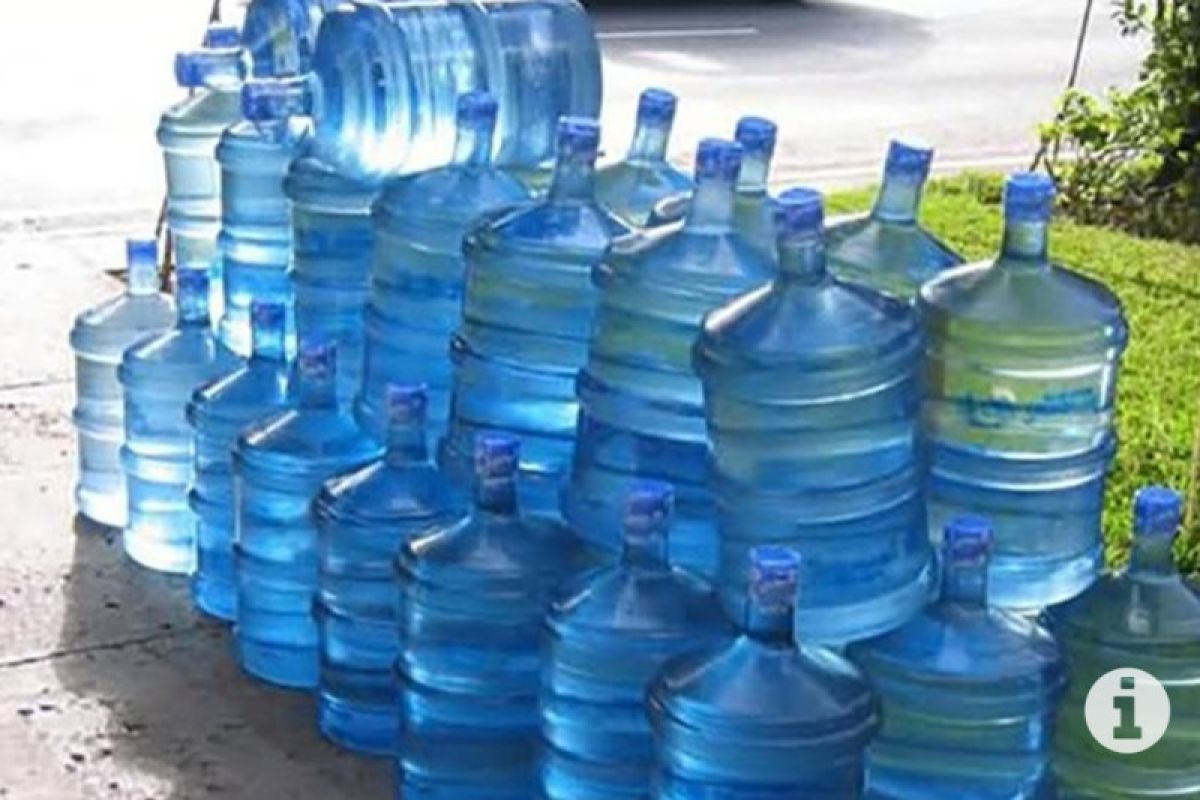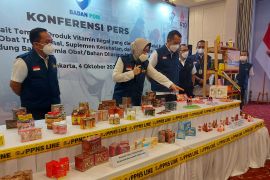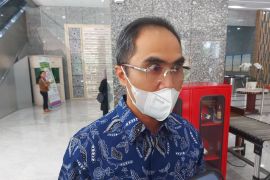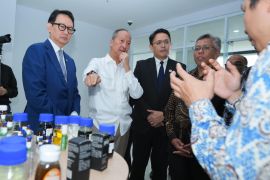This has the potential to release BPA quicklyJakarta (ANTARA) - The poor distribution of reusable or refillable drinking water gallons can aggravate the migration or release of harmful Bisphenol A (BPA), according to a senior researcher at Airlangga University, Surabaya, East Java.
Dean of the Faculty of Pharmacy, Airlangga University, Prof. Junaidi Khotib, here, Saturday, drew attention to a research on the kinetics of BPA migration from polycarbonate packaging, with the higher the BPA level, the higher being the BPA being released.
"This release really depends on the temperature and acidity level. If during distribution and production, drinking water gallons are exposed to direct sunlight that increases the temperature, then of course, there will be a very fast migration (of BPA)," Khotib explained.
Related news: Indonesia to highlight water management to optimize food production
According to the dean, the National Agency of Drug and Food Control (BPOM) should no longer allow people to be constantly exposed to BPA, given their deteriorating effects on health, such as disturbing the brain and mental development in early childhood.
"The BPOM can reduce the chances of exposure to BPA through labeling on food and beverage packaging," he added.
Meanwhile, BPOM's data indicated that 96.4 percent of the circulating reusable gallons contained BPA.
In addition, BPOM's latest research on the level of BPA migration in reusable gallons at the production, distribution, and circulation facilities showed that the BPA release was "very alarming".
A food processing professor at the Department of Chemical Engineering, Diponegoro University, Prof. Andri Cahyo Kumoro, revealed that producers often transported water gallons recklessly, thereby exposing them to sunlight and letting them wobble on road.
Related news: 12 heads of state likely to join Bali World Water Forum
"This has the potential to release BPA quickly," he noted in a response to assessing producers, who neglected the quality of packaged drinking water.
He remarked that BPA labeling on selected gallons is one of the options to educate members of the public, many of whom are unaware of the dangers of BPA.
"My advice is producers should switch to safer packaging that is BPA-free," he stated.
Related news: Indonesia, France agree to strengthen defense cooperation
Related news: Uno, Pandjaitan step up preparations for G20 Summit in Bali
Translator: Subagyo, Kenzu T
Editor: Fardah Assegaf
Copyright © ANTARA 2022











